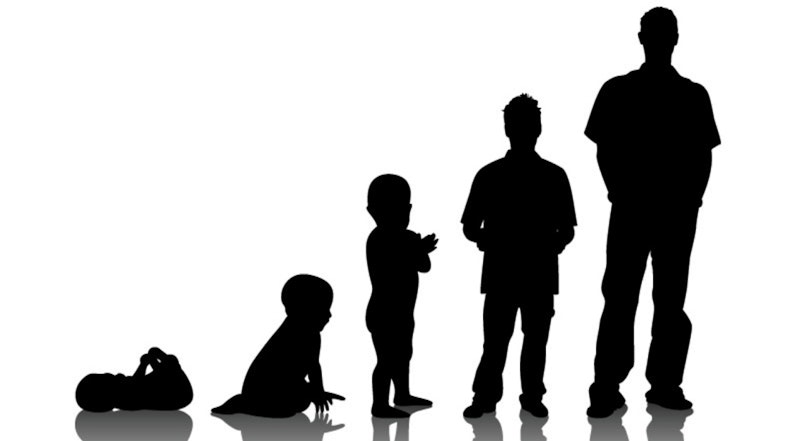Newborn to six months: What is time? It’s an idea. Time is naturally divided into sleeping and waking. For these six months, time will stretch and contract. Time's elasticity will take on a new, more intimate, meaning. One may wonder about the past and the way clocks dictate much of our lives today. One may research the history of coordinated time while a baby dozes on your chest. One may consider that only when the railroad connected humans across long distances did the idea of the clock begin to matter.
Six months to one year: Time is broken into weeks and months. Milestones and month stickers stuck on a wall. How old is Daddy? How old is Mama? Older than they used to be and no longer thinking about their age, except when they get up off the floor. All the books give us more information than we need. Does it help to know that is going to be another extra fussy week because of what’s happening in the brain? What’s happening in your brain? What’s happening in my brain? Where’s my mind?
One year to two years: Time shifts into a woozy blur. Teeth grow, knifing their way through gums, millimeter by millimeter. When I’m tired, my decaying tooth, the one that was chipped in gym class in third grade, the nerve begins to throb. The time to move. Walk at 10 months? Walk at 13 months? The toddler who won’t walk becomes a problem and the toddler who will walk becomes a problem. Wobbling becomes walking becomes bumping into everything. Through an observant parent's eyes, everything becomes a potential danger. Time ebbs and flows. Figuring out how to manage work and family time becomes important. Time slips faster than ever before.
Two years to three-and-a-half years: Getting to the end of the day becomes harder. Sleep becomes slippery. Naps and night time and timers for every transition. As the toddler absorbs the “Power of ‘No!’" the parent’s ability to manage time weakens. As the pandemic has done its best to stop time entirely, parents have drifted into a swamp of hours. Searching for driftwood or floaties, really anything to hold onto, time bubbles up and belches. At first, we counted the weeks of quarantine. Then the months. Soon it will be a year. We search for dates on a calendar to maintain a sense of the passage of the days. Thank goodness preschool reopened and they've stayed rigorous in their approach to health. Gratitude is overwhelming on Monday morning drop-off.
The Future: The sky lightens at dawn. The sun, all of 93 million miles away, somehow stays in the sky... then it appears to fall again. Time will remain elusive and theoretical. Days in a week. Weeks in a month. Months in a year. To keep the mind from getting ahead of itself is the impossible trick. Finding the present is never easy. When will the vaccine arrive? When will the coastal cities sink into the oceans? Will college even exist in 2035? Keeping one’s self in the present is never easy.
The Wonder: Despite the exhaustion, the moments of unexpected joy and wonder will sustain the parent, if the parent lets them. At 4:32 a.m., an hour after the three-year-old has crawled into bed and snuggled under the warm comforter, but not fully settled and thus has kept the parent from returning completely back to dreamland… the child may say, “I love you, Daddy. We live in this home together.”

